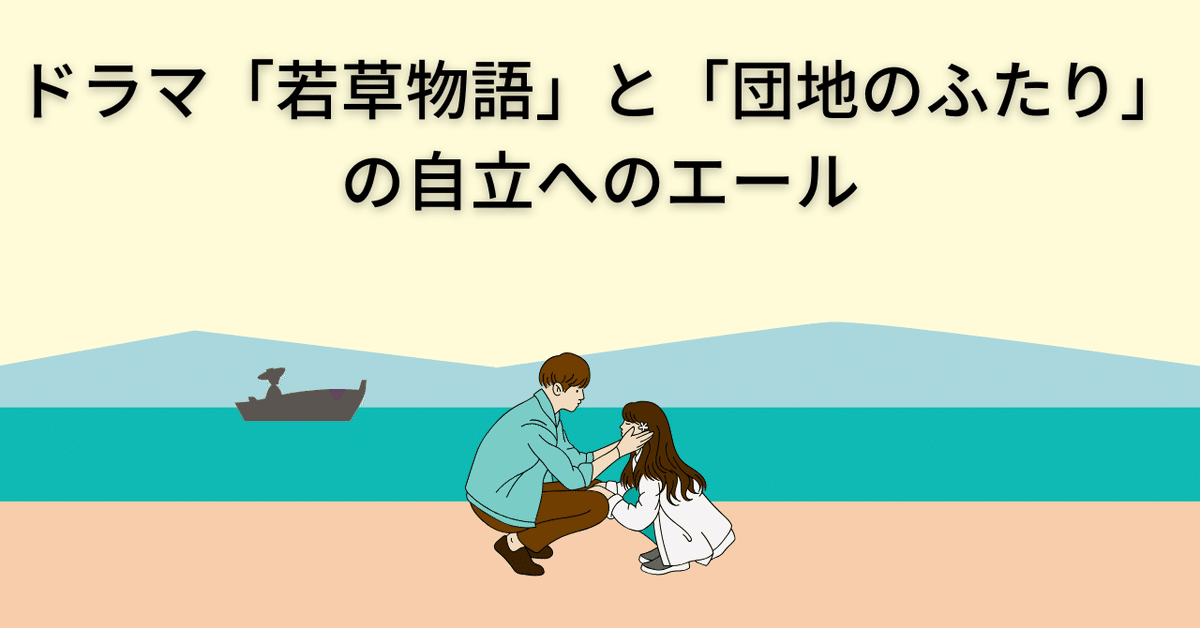
『ドラマ「若草物語」と「団地のふたり」は自立へのエール』英語韓国語日記2024/12/20
For as long as I can remember, I have asserted this: the postwar archetype of life prevalent in Japan and other developed nations—completing education, securing stable corporate employment, marrying, and raising children—was not flawed in itself. Yet, by 2023, the landscape has shifted dramatically. Data reveals that only 40% of employment is regular, while a staggering 60% falls under non-regular status. Among these non-regular workers, men account for 30%, while women dominate at 70%. This reality underscores a fundamental truth: the so-called “standard lifestyle” is no longer a practical aspiration for the majority, particularly women.
The passage of time has fractured the foundation of this ideal, giving rise to disparities in wages, social status, and personal values, including those surrounding romance and marriage. The once-sacred ideal of love and matrimony has diminished, replaced by a more pluralistic view of fulfillment. One driving force is the yearning of women to liberate themselves from the societal prescription of being bound to home, marriage, and child-rearing.
The drama Little Women, inspired by Louisa May Alcott’s classic novel, transposes its themes to a modern setting. Its protagonist, Machida Ryo, works as an assistant director for a production company yet finds herself disillusioned with dramas that venerate love and marriage as the ultimate goals. Determined to craft narratives unshackled by these conventions, she becomes a screenwriter, redefining her values and reshaping her relationship with her boyfriend into one of mutual friendship.
Danchi Duo, based on Fujino Chiya’s novel, offers a quiet exploration of two women in their 50s. Sakurai Natsuko, an illustrator, ekes out a living through online flea markets, while Ota Noe, divorced and commuting long hours as an adjunct lecturer, navigates the challenges of her uncertain life. These women, returning to their childhood housing complex, find solace and strength in each other, carving out lives of dignity amid modest means.
Both dramas are united by their portrayal of women who, though single, lead lives defined not by solitude but by the rhythms of ordinary existence. They neither scorn love nor marriage—Machida actively supports her sisters’ romantic pursuits, while Noe cheers on budding relationships in her community. Yet, they embrace a vision of life unmoored from the supremacy of these ideals, choosing independence as their compass.
Where past narratives might have cast such characters as lonely figures, these stories frame them as self-sufficient individuals, resonating with viewers who may see their own struggles and choices reflected. The message is clear: to walk one’s own path is not to walk alone—it is to walk with purpose.
오래전부터 회자되어 온, 학교를 졸업하고 기업에 취직하여 결혼과 출산으로 이어지는 삶의 방식은, 일본을 비롯한 선진국들이 전후 시대의 이상으로 삼았던 전형이었습니다. 그 자체에 어떤 오류가 있다고 단정 지을 수는 없을 것입니다. 하지만 2023년의 통계는 정규직 40%, 비정규직 60%라는 냉정한 현실을 드러내며, 특히 비정규직 여성의 비율은 70%에 달합니다. 이러한 불균형은 임금, 사회적 지위, 심지어 연애에 대한 가치관의 격차를 심화시켰습니다. 그 결과, 만혼과 만산은 일상이 되었고, 연애와 결혼을 인생의 궁극적인 목표로 여기는 사고방식은 점차 설 자리를 잃어가고 있습니다. 여성들은 ‘결혼하여 아이를 키우며 가정을 지켜야 한다’는 낡은 사회적 틀에서 벗어나 자유를 갈망합니다. 루이자 메이 올컷의 고전을 현대적으로 재해석한 드라마 “작은 아씨들”은 이러한 변화를 섬세하게 포착합니다. 드라마 조감독 마치다 료는 획일적인 로맨스 중심의 드라마 제작 현실에 반기를 들고, 스스로 각본가가 되어 새로운 이야기를 써 내려갑니다. 후지노 치야의 소설을 원작으로 한 “단지 듀오”는 일본의 서민 주택 단지인 ‘단지’를 배경으로, 50대 여성 두 명의 깊은 우정을 그립니다. 일러스트레이터 사쿠라이 나츠코는 온라인 마켓을 통해 생계를 이어가고, 이혼 후 친정 단지로 돌아온 오타 노에는 불안정한 시간 강사 생활과 고된 통근에 지쳐갑니다. 두 드라마는 화려한 사건 대신, 평범한
いいなと思ったら応援しよう!

